This is an annual forum, gathering managers, theorists, and scientific experts from Vietnam, Laos, and China to exchange theoretical issues and experiences in building socialism in each country. The forum also creates opportunities for scientists from the three countries to continuously strengthen friendship and solidarity in striving for a better future.

In his opening speech, Dr. Dang Xuan Thanh, Vice President of the Vietnam Academy of Social Sciences, said: The International Forum on Socialism, organized by the Vietnam Academy of Social Sciences, the Chinese Academy of Social Sciences, and the Lao National Institute of Economic and Social Sciences, is now the 12th time. In fact, the Forum has been effective in sharing experiences, both theoretical and practical, in building socialism in each country.
The theme of this 12th Forum addresses the model of socialist state governance in the new context. This is a relatively new issue in building socialism, reflecting higher requirements for the management role of the socialist state. It is the way to organize, operate, and control public power according to democratic principles and the rule of law under the leadership of the Communist Party, a method of operating and managing society through institutions, laws, mechanisms, and processes, on the basis of democratic interaction and coordination between state entities, enterprises, and social organizations.
During the reform and opening up process of more than 45 years in China, the renovation process of nearly 40 years in Vietnam and Laos, each country has developed its theory of the State: from the dictatorial State during the revolutionary period of seizing power to the socialist rule of law State. Those efforts have contributed to bringing great success in the fields of economy, politics , culture and society.

“However, the new context poses new requirements on: Organizing unified State power; at the same time, strengthening decentralization and delegation of power, associated with establishing a mechanism to closely monitor and control power; both expanding democracy, enhancing accountability, and strengthening the rule of law and social discipline. State governance can be considered an effective method to meet new, higher demands on the role of the State in the increasingly socialized development process, in which the State must not only perform well the “traditional” management functions, but also perform the function of creating development”, said Dr. Dang Xuan Thanh.
The forum focused on discussing three main directions: Theoretical basis of socialist state governance, main contents of socialist state governance from the practice of each country; assessing the advantages and difficulties, opportunities and challenges in implementing state governance in each country; clarifying the contents of socialist state governance in the economic, political, cultural and social fields; identifying the impact of the new context on socialist state governance; sharing lessons learned in the process of implementing socialist state governance in the new context.
Mr. Saysongkham Manodham, Vice President of the Lao National Institute of Economic and Social Sciences, Head of the Lao National Institute of Economic and Social Sciences delegation, said: The Central Party and the Government of the Lao PDR recognize the importance and have a policy of strengthening State management, modern, effective and quality social management to reduce the burden, promote the right to mastery and have more and more people's participation. The consolidation of State and social management in this direction by the Central Party and the Lao Government in the past time has been successful in many aspects such as: The organizational apparatus of the Party and the Government has been streamlined, operating more flexibly, with better quality and efficiency; the number of cadres and civil servants has been reduced; technology and digital technology have been used more and more, contributing to faster and more transparent State and social management; the role of local authorities and people's participation in State and social management have been improved.
Dr. Lou Wendong, Secretary of the Party Committee of the Institute of Marxism, Chinese Academy of Social Sciences, Head of the delegation of the Chinese Academy of Social Sciences, said: China has formulated a strategy for implementing the “15th Five-Year Plan”. This is a key stage for laying a solid foundation and striving to basically realize socialist modernization, and an important stage in the process of basically realizing socialist modernization. On this occasion, socialist countries jointly discuss national governance, which is of great significance. The Chinese Academy of Social Sciences is willing to further strengthen exchanges and dialogues with theorists of Vietnam, Laos and other socialist countries, based on international and national conditions, following the pulse of the times, continuously enriching and developing Marxism in the 21st century and jointly promoting the process of building a community with a shared future for mankind.
According to the speakers, the Forum was held in the context of the world undergoing major changes, and the reality required each socialist country to quickly innovate its State governance methods in accordance with national conditions and the context of the times in order to continue to achieve new outstanding development achievements. Therefore, the Forum devoted session 1 to discussing general issues on socialist State governance, highlighting the theoretical basis, universal values and trends of the socialist governance model in Vietnam, Laos and China; session 2 discussed opportunities and solutions to modernize the national governance system and improve the capacity of socialist State governance in the context of the digital age from the perspective of Vietnam, Laos and China.
The forum is expected to provide new knowledge and practical solutions to help scientists from the three countries continuously improve their theoretical foundations and actively contribute to the process of building socialism in each country.
Source: https://baotintuc.vn/thoi-su/quan-tri-nha-nuoc-xa-hoi-chu-nghia-trong-boi-canh-thoi-dai-moi-20251117112628398.htm










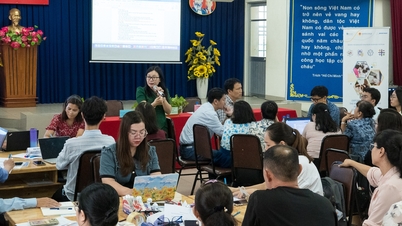







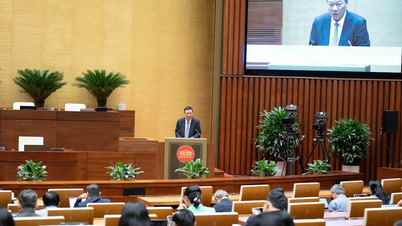












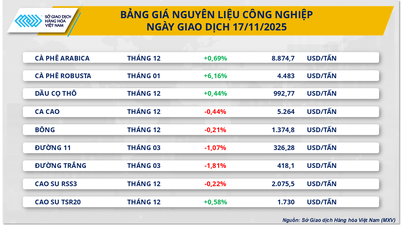




![[Photo] General Secretary To Lam and National Assembly Chairman Tran Thanh Man attend the 80th Anniversary of the Traditional Day of the Vietnamese Inspection Sector](https://vphoto.vietnam.vn/thumb/1200x675/vietnam/resource/IMAGE/2025/11/17/1763356362984_a2-bnd-7940-3561-jpg.webp)






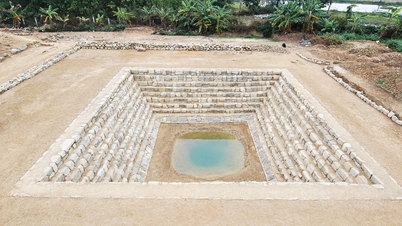

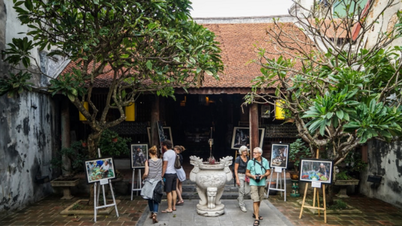














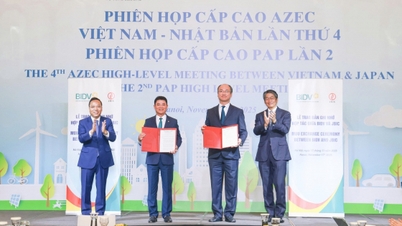























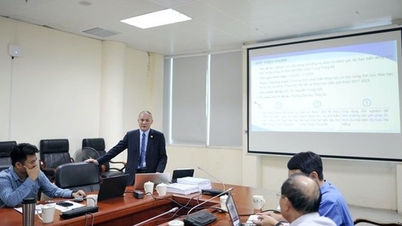










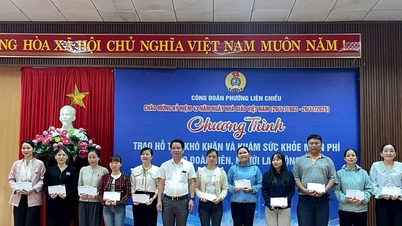













Comment (0)